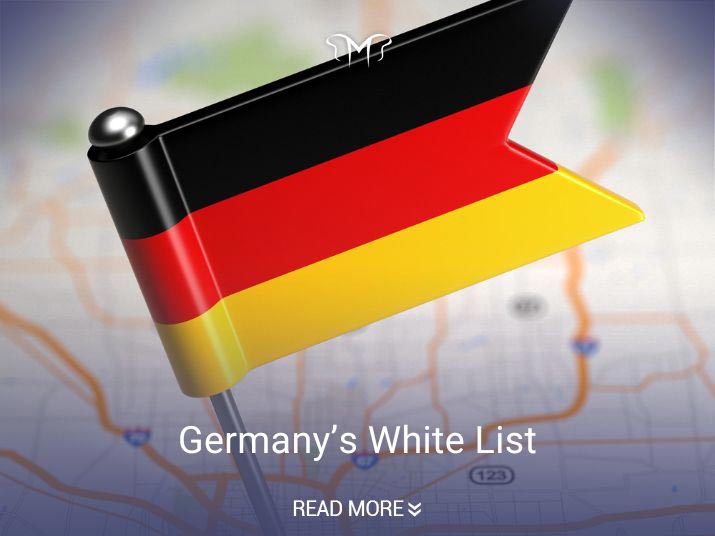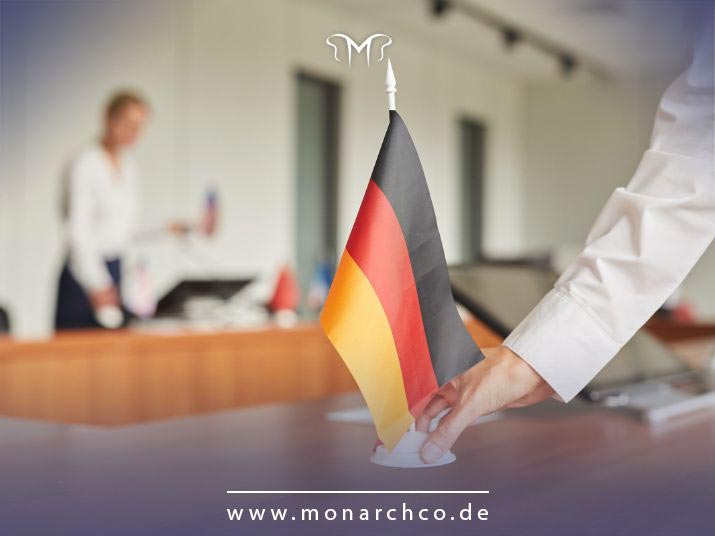
Ultimate Guide about Germany’s White List & its Opportunities for 2024
Germany is one of the most influential and prosperous countries in the world, with a strong economy, a rich culture and a high quality of life. However, not everyone can enjoy the benefits of living, working or traveling in Germany, as the country has strict rules and regulations for foreigners. One of the most important factors that determines whether a foreigner can enter Germany or not is the Germany’s white list.
The white list is a list of countries and regions that are considered safe and reliable by the German government, and whose citizens are allowed to enter Germany without a visa or with a simplified visa procedure.
The white list is updated regularly, based on the assessment of various criteria, such as the political situation, the human rights record, the health situation, the economic development and the cooperation with Germany.
Being on the white list means that a country or region has a good reputation and a strong relationship with Germany, and that its citizens are welcome and trusted by the German authorities.
But what are the benefits of being on the white list, and how can one get on the list and stay there? What are the criteria behind the white list, and which countries and regions have made the cut? And what are the opportunities and advantages for the white list countries in Germany, especially in terms of travel and trade? In this article, we will answer these questions and more, and provide you with a comprehensive guide to navigating Germany’s white list.
How Germany’s White List Affects Immigration, Education and Business Opportunities?
Germany is a great place to live, study, and work, but not everyone can easily access its opportunities. One of the factors that determine who can enter and work in Germany is “Germany’s White List”, which is a list of professions or professional groups that are in high demand and shortage in Germany.
The white list is updated every year by the Federal Employment Agency and affects immigration, education, and business in different ways.
-
Immigration: If you have a qualification that matches one of the occupations on Germany’s White List, you can apply for a residence and work permit as a skilled worker in a recognized occupation.
This means that you do not have to go through a recognition procedure, which is a process that checks whether your foreign qualification is equivalent to a German one.
However, you still need a job offer, a minimum salary, a minimum of 55 points according to a list of criteria, and sufficient language skills.
-
Education: If you want to study in Germany and pursue a career in one of the occupations on Germany’s White List, you can apply for a student visa and a residence permit to study in Germany.
This means that you can enjoy the benefits of studying in Germany, such as low or no tuition fees, high-quality education, and many scholarships. After completing your studies, you can apply for a residence permit to seek employment, which allows you to stay in Germany for up to 18 months and look for a job that matches your qualifications.
-
Business: If you want to start or expand a business in Germany and employ skilled workers in one of the occupations on the white list, you can apply for a residence and work permit as a self-employed person or a business owner.
This means that you can take advantage of the opportunities and advantages of doing business in Germany, such as a strong economy, a large market, a supportive legal framework, and a favorable business climate.
However, you still need a viable business plan, sufficient financial resources, adequate health insurance, and sufficient language skills.
Germany’s White List is a useful tool that can help you access the opportunities in Germany, but it is not a guarantee of success. You still have to meet the requirements and the challenges of the market and society.
The white list is also subject to change, so you should always check the latest information and consult with the relevant authorities before making any decisions.
What are the benefits of being on Germany's White List? How Germany's White List Boosts Travel and Trade?
Being on Germany's white list has many benefits for the countries and regions that are on the list, as well as for their citizens.
The most obvious benefit is the ease and convenience of traveling to Germany and other Schengen countries, without the hassle and cost of applying for a visa, or with a simplified visa procedure. This means that the white list countries and regions can enjoy the freedom and flexibility of visiting Germany and other Schengen countries for various purposes, such as tourism, business, education, culture, sports, family, friends, etc.
The white list countries and regions can also benefit from the diversity and richness of the Schengen Area, which offers a wide range of attractions, opportunities and experiences, such as the historical and cultural heritage, the natural and scenic beauty, the economic and technological innovation, the social and political integration, the educational and scientific excellence, the artistic and creative expression, the gastronomic and culinary delight, the entertainment and leisure activities, etc.
Another benefit of being on Germany's white list is the boost and growth of trade and commerce between the white list countries and regions and Germany and other Schengen countries.
The white list countries and regions can take advantage of the large and lucrative market of the Schengen Area, which has a population of over 400 million people and a GDP of over 15 trillion euros.
The white list countries and regions can also benefit from the free trade agreements and the preferential tariffs that Germany and other Schengen countries have with some of Germany's white list countries and regions, such as Canada, Japan, South Korea, Singapore, etc.
The white list countries and regions can also benefit from the cooperation and collaboration that Germany and other Schengen countries have with some of the white list countries and regions, such as Australia, Israel, New Zealand, United Kingdom, United States of America, etc., in various fields and sectors, such as science, technology, innovation, education, research, development, etc.

What are the Criteria behind Germany's Whitelist?
The Germany’s white list is not a random or arbitrary list, but rather a carefully and rigorously crafted list, that reflects the interests and values of Germany and the EU. The white list is based on a set of criteria that are used to assess and evaluate the countries and regions that are eligible for Germany's white list.
The criteria are not fixed or rigid, but rather flexible and adaptable, depending on the changing circumstances and conditions in the world. The criteria are not public or transparent, but rather confidential and discreet, depending on the strategic and diplomatic considerations of Germany and the EU.
However, some of the main criteria that are used to determine the Germany’s white list are the following:
- The political situation: The white list countries and regions have to have a stable and democratic political system, which respects the rule of law, the human rights, the civil liberties, the minority rights, the gender equality, the media freedom, the electoral integrity, the anti-corruption measures, etc.
The white list countries and regions have to have a peaceful and cooperative relationship with Germany and the EU, as well as with their neighbors and the international community. The white list countries and regions have to have a constructive and positive role in the global and regional issues, such as the security, the development, the environment, the humanitarian, etc.
- The health situation: The white list countries and regions have to have a safe and healthy health system, that protects the public health, the health care, the hygiene, the sanitation, the vaccination, the prevention, the treatment, etc.
The white list countries and regions have to have a low and controlled level of the COVID-19 pandemic, as well as of other infectious and communicable diseases, such as tuberculosis, malaria, the HIV/AIDS, etc. The white list countries and regions have to have a high and reliable level of the health data, the health statistics, the health surveillance, the health reporting, etc.
The economic situation: The white list countries and regions have to have a strong and prosperous economic system, which supports the economic growth, the economic stability, the economic diversity, the economic competitiveness, the economic innovation, etc.
Exploring the High-Growth Careers in Germany for White List Countries
If you are looking for a new career opportunity in a dynamic and prosperous country, you might want to consider Germany. Germany is one of the most attractive destinations for skilled workers from around the world, offering a high standard of living, a strong economy, a rich culture and a variety of career opportunities.
However, not all professions are equally in demand in Germany. Some sectors are facing a severe shortage of qualified workers, while others are more competitive and saturated.
Which careers are in high demand in Germany?
Germany’s skills shortages are most pronounced in the sciences, engineering and healthcare sectors. However, it is important to note that the skills gaps occurring in these sectors strongly depend on the level of qualification.
Highly skilled professionals who can demonstrate that they hold certain qualifications may therefore be more in demand than lower skilled or entry level professionals.
Germany categorizes workers into the following three groups:
- Skilled or Qualified Professionals are people who have completed at least two years of vocational training or a comparable qualification.
- Specialists are workers with a master craftsperson or technician’s training, or who have a university degree or similar qualification.
- Experts are people who have completed at least four years of university study or equivalent qualification.
According to the data related to the Germany government website, the following professions are highlighted as in high demand:
-
Nursing professionals
-
Physicians
-
Engineers
-
IT specialists
-
Scientists
-
Craftspeople
-
Green Jobs
How to apply for a work permit or a residence permit in Germany?
If you are from Germany's white list country and want to work in Germany, you need to apply for a work permit or a residence permit depending on your situation.
There are different types of permits available, such as:
- Job seeker visa: This visa allows you to stay in Germany for up to six months and look for a job. You need to have a recognised qualification and sufficient funds to support yourself. You are not allowed to work with this visa.
- EU Blue Card: This is a residence permit for highly qualified workers who have a recognised university degree and a job offer in Germany with a minimum annual salary of 56,800 euros (or 44,304 euros for shortage occupations). You can stay in Germany for up to four years and enjoy some benefits such as family reunification and mobility within the EU.
- Skilled Immigration Act: This is a new law that came into effect in March 2020 and aims to make it easier for skilled workers from non-EU countries to work in Germany. It allows workers with vocational training or a university degree to apply for a residence permit if they have a job offer in Germany or a qualification that is in demand in Germany. They also need to have a good command of the German language and sufficient funds to support themselves.
- Recognition procedure: This is a process that evaluates your foreign qualification and compares it with the German equivalent. It is necessary for some professions, such as regulated professions (e.g. doctors, nurses, teachers, lawyers, etc.) or professions that require a specific license or certification. You can apply for the recognition procedure before or after arriving in Germany, depending on your situation.

Conclusion
If you are from Germany's white list country, you have the advantage of being able to enter Germany without a visa and apply for a work permit or a residence permit from within the country.
However, you still need to meet the criteria and follow the procedures to secure your legal status and your employment.
Germany is a land of opportunities for skilled workers from around the world. The country offers a high standard of living, a strong economy, a rich culture and a variety of career options. However, not all professions are equally in demand in Germany. Some sectors are facing a severe shortage of qualified workers, while others are more competitive and saturated.
In this blog post, we have explored some of the high-growth careers in Germany’s white list countries, and how to apply for a work permit or a residence permit depending on your situation.
We hope this blog post has given you some useful insights into the white list countries and the high-growth careers in Germany. If you are interested in working in Germany, we encourage you to do your research, prepare your documents, and apply for the appropriate permit.


